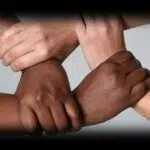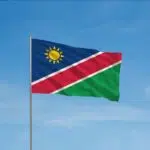Human Rights Day South Africa, commemorated annually on 21 March is an important national day that urges South African citizens to remember the struggles and sacrifices paid for the attainment of democracy and the protection of human rights in the country. Built upon the unforgettable tragic events on March 21, 1960, which saw 69 peaceful protesters of Pass Laws shot and killed, and 180 wounded by the police at Sharpeville, the gross violation of Human rights was dubbed the ‘Sharpeville Massacre.’ To date, the violation of human rights of the vulnerable and marginalized is visible at every turn.
History of Human Rights Day South Africa
December 10, 1948, witnessed the United Nations adopt the “Universal Declaration of Human Rights (U.D.H.R.)” — an international document that enshrines the 30 rights of all humans, encompassing humanity, freedom, justice, and peace. Top violated human rights in South Africa include equality, unfair labor practices, lack of access to health care, water, food, and social security, right to just administrative action, and violations of rights about arrest and detention.
Racial segregation and the apartheid system were powered by Pass Laws otherwise known as the Native Laws Amendment Act, 1952, which saw blacks being segregated and denied their rights; limits to permanent residence in urban areas, controlled movement, and requirement of blacks to carry a reference book at all times. No black person was allowed in urban areas for more than 72 hours unless exempted by Section 10. The inability to produce the reference book attracted dire consequences.
Frustrated and enraged by the intimidation, lack of respect, and indignity, on March 21, 1960, it was agreed upon by the Pan Africanist Congress (P.A.C.) to launch an anti-pass campaign that would see all African men assemble without passes and present themselves for arrest. Campaigners stormed police stations in townships near Johannesburg and the Sharpeville police station, the latter would be the host of the final deadly blow, the police opened fire on the peaceful protesters and 69 people were gunned down while 180 were wounded. The day came to be known as ‘Sharpeville Day.’
South Africa’s Human Rights Day was birthed when the country held its first democratic election, and anti-apartheid revolutionary and statesman Nelson Mandela was elected as its first democratic President. On March 21, Human Rights Day was officially proclaimed a public holiday.
Human Rights Day South Africa timeline
They formalize policies of racial segregation, known as apartheid, against black people.
Blacks are restricted by Pass Laws controlling their urban area movements.
On August 9, 1956, a group of 20,000 women demonstrate against the pass laws.
The Pan Africanist Congress (P.A.C.) takes a stand against racism, gathering at Sharpeville.
It is established on October 2, 1995, under the Human Rights Commission Act 54 of 1994.
Human Rights Day South Africa FAQs
Why do South Africans celebrate Human Rights Day?
South Africa’s Human Rights Day is important in history, marking a turning point where the oppressed stood up and fought for equality against pass laws in the apartheid era on March 21, 1960, through demonstrations in Sharpeville. 69 of the protesters were killed, Human Rights Day March 21 honors the figures behind selfless sacrifices that paved way for liberation being enjoyed today in the country.
What was the theme for South Africa Human Rights Day 2021?
The year of Charlotte Maxeke: Promoting human rights in the age of COVID-19.
How was South Africa Human Rights Day 2021 celebrated?
On March 21 in the Eastern Cape, virtually, due to the pandemic.
.
How to Observe Human Rights Day South Africa
Empower yourself
Gather information about human rights through reading up, watching documentaries, and other sources available to you. A walk down memory lane helps us appreciate the struggle put in the movement, serving as a major inspiration to carry on the legacy.
Educate the public
Those who do not know their rights can never tell when they are being oppressed. Information is key. Educate the public on the importance of knowing their rights by staging a reading of the “Universal Declaration of Human Rights.”
Join the fight
Lend your voice, and join the campaign to empower our world. There are so many initiatives around, volunteer or if that might be too stressful, donate. Whatever you choose, be part of the movement.
Even the government can’t fight your rights
See the Bill of Rights Chapter Two of the Constitution of the Republic of South Africa, 1996.
Eleanor Roosevelt was a champion
Former First Lady of the U.S., Eleanor Roosevelt chaired the U.N. Human Rights Commission.
South Africa’s first democratic election
On 27 April 1994, history was rewritten when S.A. held democratic elections — Freedom Day.
Mandela shattered age-long barriers
African National Congress’s Nelson Mandela, at the age of 77, became the first black president.
Constitution of South Africa
President Nelson Mandela signed the law of the land that took effect on 4 February 1997.
Why Human Rights Day South Africa is Important
It reminds us to keep heroes’ memories alive
Oftentimes history is forgotten or not thought about with much importance, this significant day opens our eyes to the pain behind the journey, eliciting deep feelings of appreciation for the selfless sacrifices that paved the way for a better today. Today is an important day to remember.
It urges us to fight for better futures
This acts as a clarion call urging us to wake up and address discrimination which is disguised in various forms around us. We are reminded of our rights to dignity, freedom, and justice as humans, empowering us never to settle for less.
It challenges us to do better
The past cannot be rewritten, but it can pave the way for the better. Each new day presents new opportunities to do better as humans, and perpetrators of evil are reminded of this fact.
Human Rights Day South Africa dates
| Year | Date | Day |
|---|---|---|
| 2026 | March 21 | Saturday |
| 2027 | March 21 | Sunday |
| 2028 | March 21 | Tuesday |
| 2029 | March 21 | Wednesday |
| 2030 | March 21 | Thursday |




















































